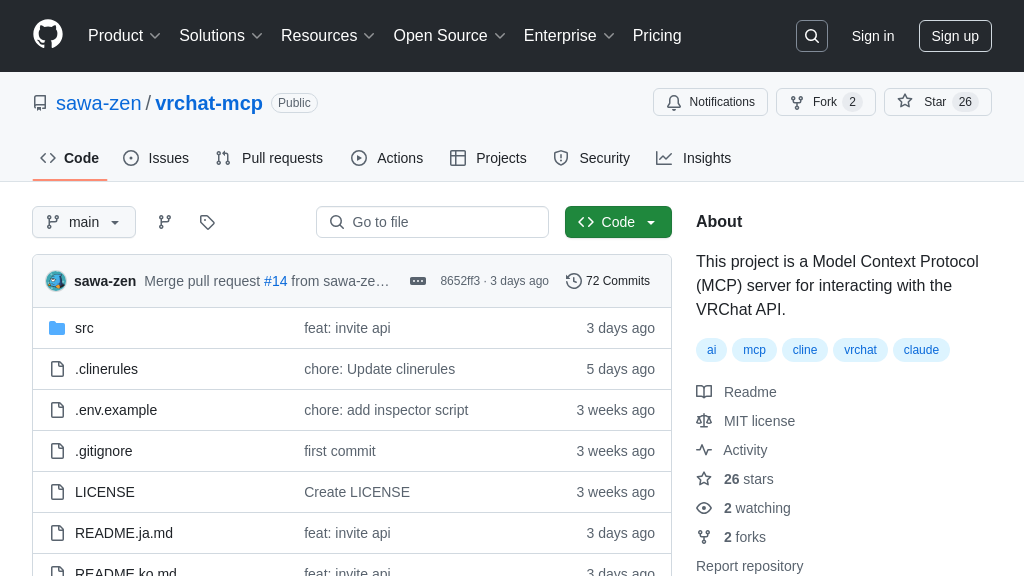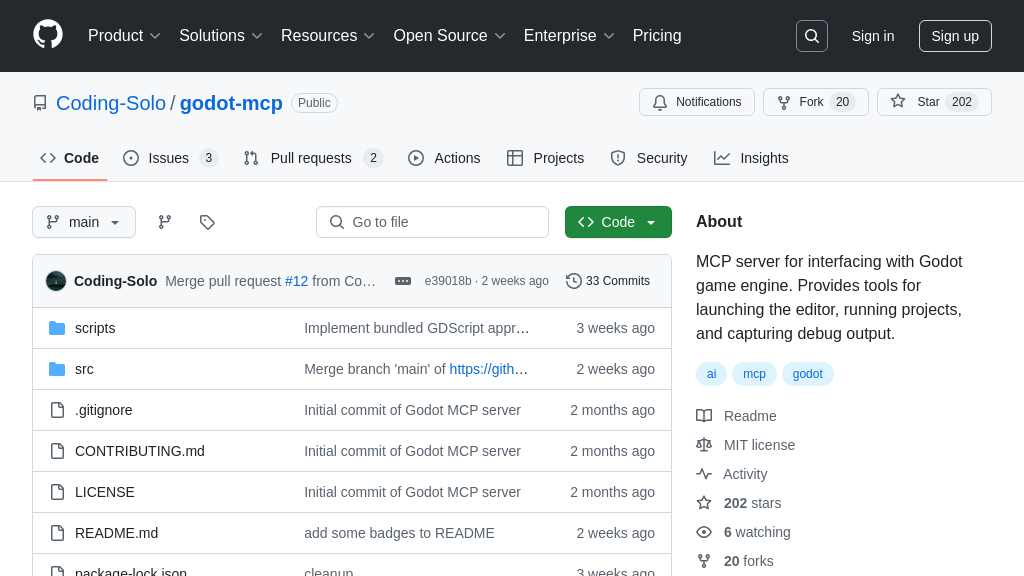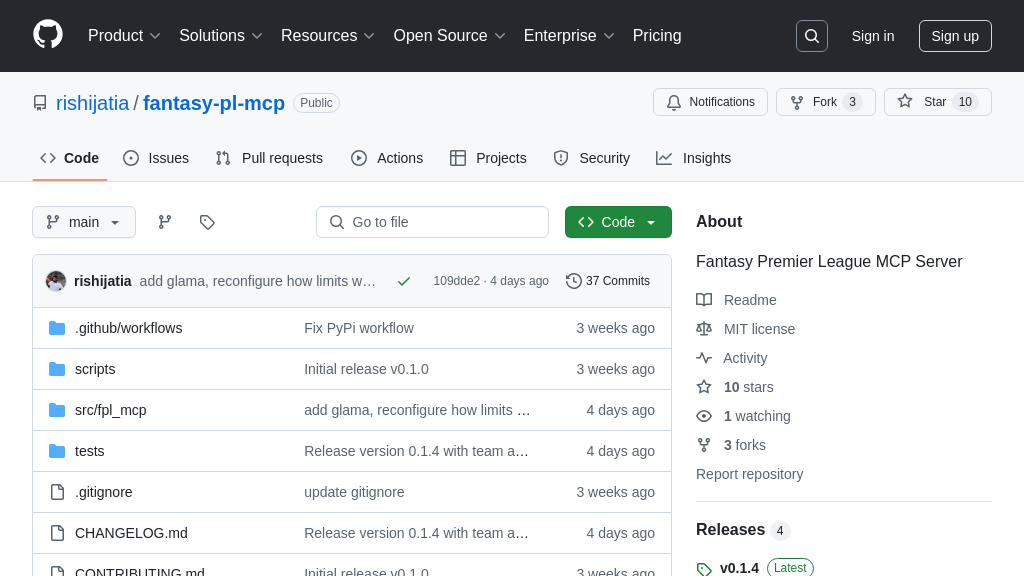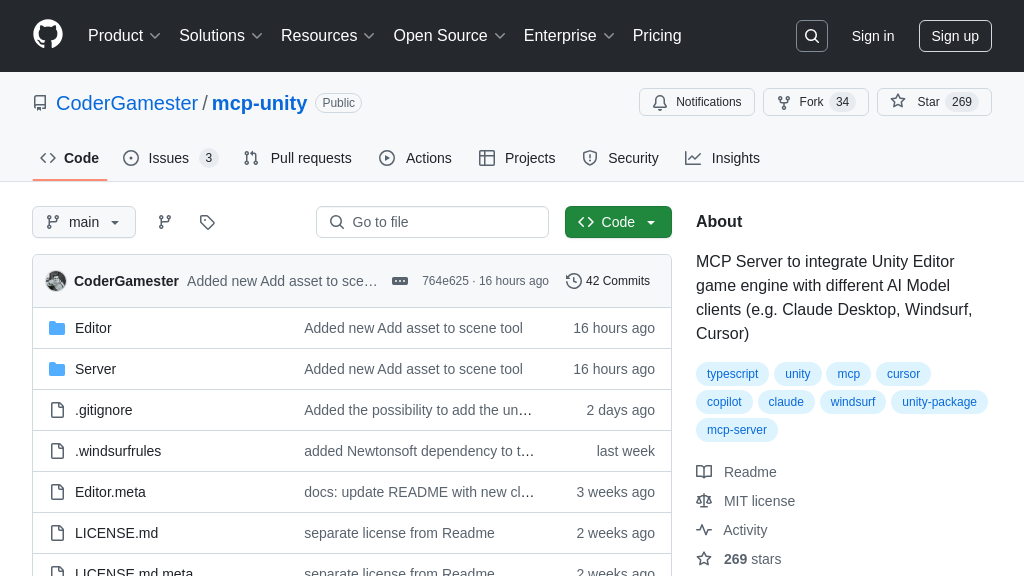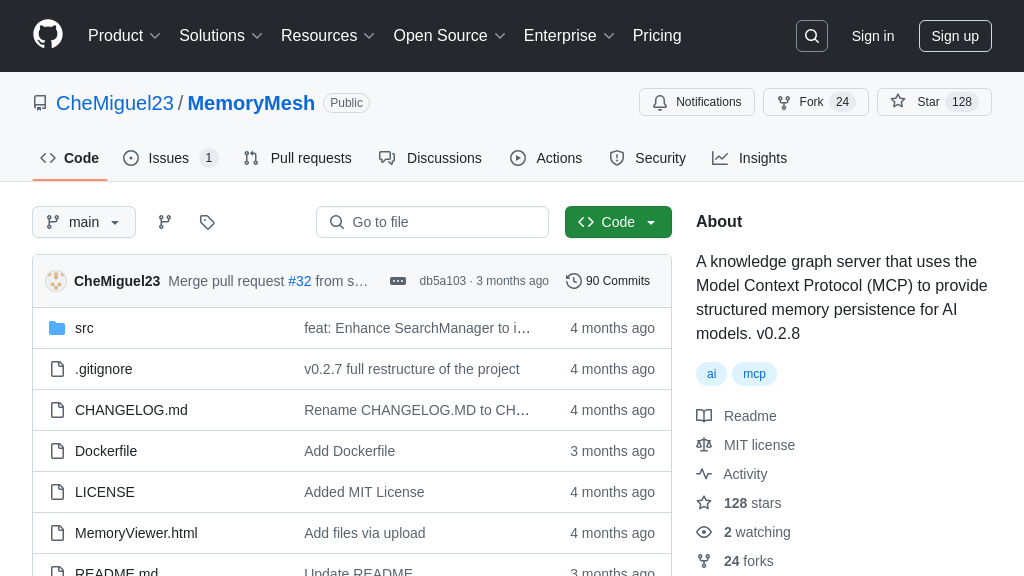chess-mcp
Chess.com MCP Server: AI access to chess data for analysis and learning.
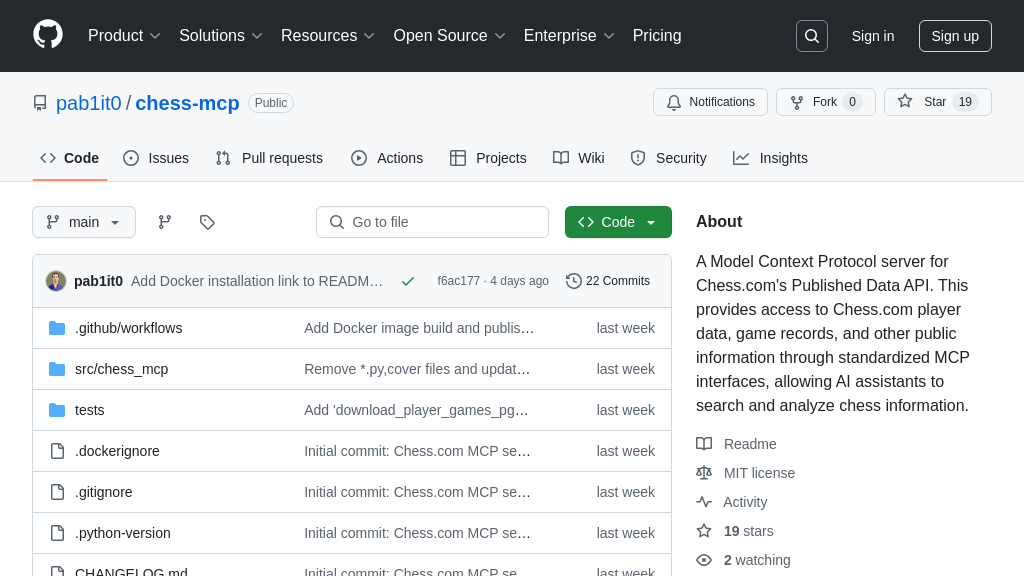
chess-mcp Solution Overview
Chess-mcp is an MCP server designed to provide AI models with access to Chess.com's public data API. This server empowers AI assistants to search and analyze a wealth of chess-related information, including player profiles, game records, and club details, without requiring authentication.
Key features include tools for accessing player statistics, checking online status, retrieving game archives, and exploring club information. By integrating chess-mcp, developers can enable AI models to provide users with interactive chess insights, analyze player performance, and even download game data in PGN format.
The server is easily deployable using Docker, ensuring a consistent and straightforward setup. Alternatively, it can be run directly using UV. Chess-mcp unlocks a new dimension of chess analysis and engagement for AI applications, offering valuable data and tools for both players and enthusiasts.
chess-mcp Key Capabilities
Access Player Chess Data
chess-mcp provides AI models with access to a wealth of Chess.com player data, including profiles, statistics, and game records. This functionality allows AI assistants to analyze player performance, playing styles, and historical data. The server retrieves this information through Chess.com's public API, ensuring no authentication is required, simplifying the integration process for developers. This feature enables AI to provide users with detailed insights into their own games or the games of others, offering personalized training recommendations or strategic advice based on concrete data.
For example, an AI could analyze a player's win/loss ratio against specific openings, suggesting they focus on improving their response to those openings. The underlying implementation involves making HTTP requests to the Chess.com API endpoints and parsing the JSON responses to extract relevant player data.
Search and Analyze Chess Games
This feature enables AI models to search and analyze chess games by date and player. It allows for targeted analysis of specific games or periods, providing valuable context for understanding player behavior and game outcomes. AI assistants can use this functionality to identify patterns, assess the effectiveness of different strategies, or even predict future moves based on historical data. This is particularly useful for training AI models to play chess or for developing tools that assist human players in improving their game.
Imagine an AI assistant helping a chess coach by automatically identifying recurring tactical errors in a student's games from a specific month. The technical implementation involves querying the Chess.com API for game archives and parsing the PGN (Portable Game Notation) data to extract move sequences and game metadata.
Real-time Player Status Monitoring
chess-mcp allows AI models to check the online status of Chess.com players in real-time. This feature enables AI assistants to provide timely information about player availability, facilitating interactions such as scheduling games or initiating discussions. It can also be used to monitor the activity of specific players, providing insights into their playing habits and engagement with the Chess.com platform. This real-time aspect enhances the responsiveness and utility of AI-powered chess tools.
For instance, an AI could notify a user when their favorite chess streamer is online and available for a game. The technical implementation involves periodically polling the Chess.com API to retrieve player status information and updating the AI model's internal representation accordingly.
Club and Titled Player Insights
The server provides access to information about Chess.com clubs and titled players. This allows AI models to understand the social and competitive landscape of the Chess.com community. AI assistants can use this information to identify potential opponents, discover new clubs to join, or analyze the performance of top players. This feature enhances the AI's ability to provide comprehensive and context-aware chess-related information.
For example, an AI could recommend chess clubs to a user based on their playing style and interests, or provide a list of titled players who are currently active in a particular club. The technical implementation involves querying the Chess.com API for club and titled player data and presenting it in a structured format to the AI model.
